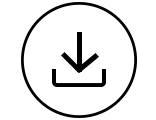Download square or vertical graphics below:
Studies show that the average attention span is now only eight seconds. That’s about as much time as it takes to read a few sentences before being distracted.
A new national survey of 1,000 American adults commissioned by The Ohio State University Wexner Medical Center and College of Medicine finds that stress and anxiety contribute most to a short attention span (43%), followed by lack of sleep (39%) and digital devices (35%).
Other contributing factors include boredom or lack of interest (31%); multitasking (23%); lack of physical activity (21%); poor diet/hydration (20%) and medical conditions such as ADHD (18%).
Only 25% of survey respondents said they don’t have trouble with their attention span.
Evita Singh, MD, a psychiatrist with Ohio State’s Department of Psychiatry and Behavioral Health said this is something she sees often.
“The stress and the ruminating and thinking about things over and over in your mind can certainly impact attention span and the ability to focus,” said Singh. “Often when patients come to see me, they’re worried about their ability to focus, and there’s a good chance that it ends up being because they’re so stressed out or they’re anxious. So we work on treating that.”
Short attention spans can have long-term consequences, she said.
“When people are multitasking, when they have so many things in their mind that they’re thinking about, they can get exhausted,” Singh said. “And then it’s really hard to enjoy things, which can then lead to depression or anxiety.”
To help improve attention spans and the ability to focus longer, Singh created a tool to help.
 It’s called Take Five:
It’s called Take Five:
- T – Take frequent breaks.
- A – Actively engage in the one task at hand.
- K – Keep distractions to a minimum.
- E – Eliminate multitasking.
- Five – Take five minutes to refocus.
“For example, can we do five minutes of a small workout practice, or a little bit of mindfulness or something else that we enjoy?” Singh asked.
If techniques such as “Take Five” are not working, and a lack of focus or short attention negatively impacts day-to-day life, Singh encourages people to seek help from a mental health professional.
“There are many different things that can lead to why we’re having a hard time focusing or having trouble with attention,” Singh said. “But being able to recognize that while also giving grace to ourselves that we don’t need to be ‘on’ and focusing 100% of the time is also really important.”



